- Call/Whatsapp
- +91 7737956466
- sales@jagdishprajapat.com

12 best SEO tools that SEO Experts use in 2024
April 10, 2023
On-Page Optimization Made Easy: Tips and Tools for Higher Rankings
April 30, 2023Mastering Keyword Research: The Key to SEO Success

Welcome to the world of SEO! If you’re new to the game, you may have heard the term “keyword research” thrown around quite a bit. But what exactly is keyword research? In short, it’s the process of identifying the words and phrases that people use to search for information on a particular topic or industry.
In this article, we’ll explore the ins and outs of keyword research and why it’s so important for your online presence. So, buckle up and get ready to dive into the fascinating world of keywords!
What is Keyword Research?
If you’re looking to improve your website’s search engine rankings, keyword research is the key. Put simply, keyword research is the process of identifying the words and phrases that people use to search for information online. By conducting keyword research, you can gain insights into what your target audience is searching for and create content that is optimized to rank well in search engine results pages (SERPs).
Purpose of Keyword Research in SEO
The purpose of keyword research in SEO is to help you better understand the search behavior of your target audience.
- Addressing Your Audience’s Needs
By identifying the keywords and phrases that people are using to search for information related to your industry or niche, you can create content that addresses their specific needs and interests. This, in turn, can help you to attract more traffic to your website, generate leads, and increase conversions.
- Increase Your Chances of Ranking
It allows you to identify popular search terms related to your industry or niche. By understanding which keywords are most commonly searched for, you can create content that addresses those topics and increase your chances of ranking well in search results.
- Understanding User Intent
It can help you understand user intent. By analyzing the types of keywords and phrases that people are using to search for information, you can gain insights into what they are looking for and create content that meets their needs. For example, if you notice that people are searching for “best vegan protein powders,” you could create a blog post that compares different vegan protein powders and recommends the best options.
How Keyword Research Can Impact Your Online Success
Keyword research involves identifying the words and phrases that people use to search for your products or services on search engines like Google. By understanding the language your potential customers use when searching for your offerings, you can optimize your website’s content and structure to align with their search intent.
For instance, let’s say you own a bakery that specializes in vegan and gluten-free desserts. Conducting keyword research can help you identify the specific terms and phrases that your target audience is searching for when looking for vegan and gluten-free desserts. By incorporating these keywords into your website’s content, such as your product descriptions and blog posts, you can increase your chances of ranking higher in the SERPs when someone searches for those keywords.
Implementing effective keyword research can also help you drive relevant traffic to your website. When your site appears at the top of the SERPs for keywords that are relevant to your business, you’re more likely to attract users who are interested in what you have to offer. This means that the traffic coming to your site is more likely to convert into paying customers.
For example, let’s consider the case of an e-commerce site that sells outdoor gear. By conducting keyword research, the site owner discovers that many people are searching for “best hiking boots for women.” Based on this information, the site owner creates a blog post that reviews the top hiking boots for women, including some of the products they sell. This post ranks high in the SERPs for the targeted keyword, driving relevant traffic to the site and increasing the likelihood of conversions.
Real-life examples of businesses that have benefited from keyword research are abundant. One such example is the case of Healthline, a popular health and wellness website. Healthline discovered that many people were searching for “how to lower blood pressure naturally.” They created a comprehensive guide that addressed this topic, incorporating targeted keywords throughout the article. As a result, the article ranks highly in the SERPs for related keywords, driving a significant amount of organic traffic to the site.
Effective keyword research is crucial for improving your website’s visibility in the SERPs, driving relevant traffic to your site, and increasing conversions. By identifying the words and phrases that your potential customers are using to search for your products or services, you can optimize your website’s content and structure to align with their search intent. With the right keyword research strategy, you can attract more organic traffic to your site and increase your chances of converting those visitors into paying customers.
Types of Keywords to Consider in Keyword Research
When conducting keyword research, consider five types of keywords: short-tail keywords, long-tail keywords, Intent targeting keywords, Branded keywords and latent semantic indexing (LSI) keywords.
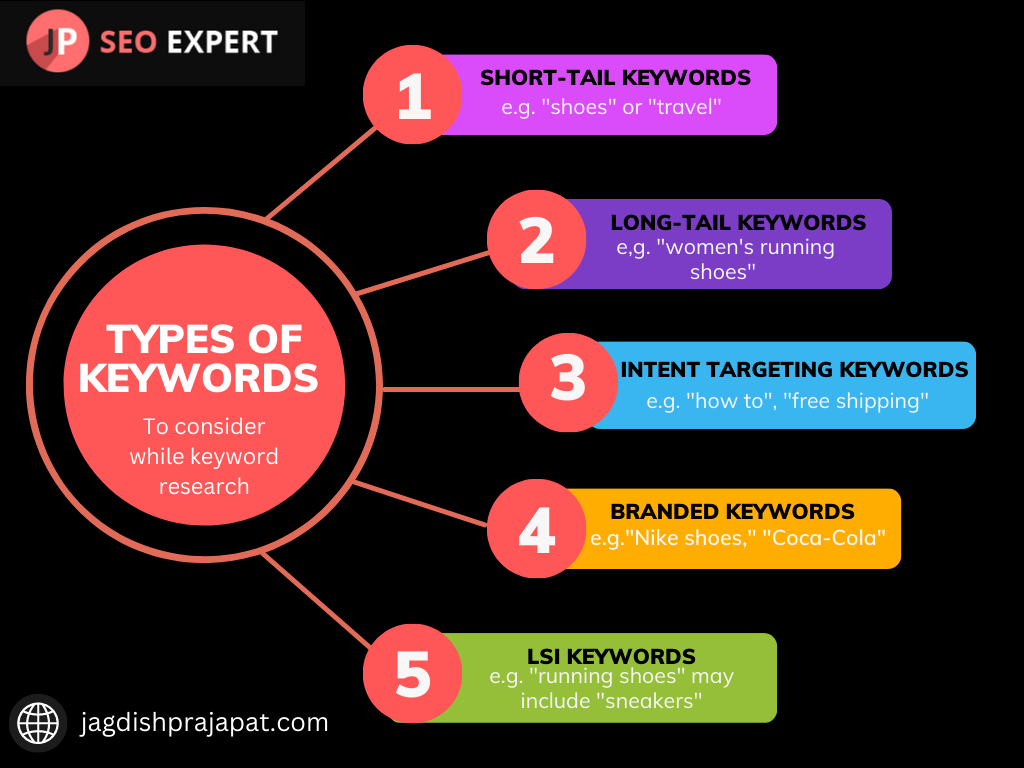
- Short-tail keywords are general one or two-word phrases (e.g. “shoes” or “travel”).
- Long-tail keywords are specific phrases of three or more words (e.g. “women’s running shoes” or “best travel destinations in Europe”).
- Intent targeting keywords are selected based on the user’s intent and can be grouped into informational (e.g. “how to”, “what is”, “best practices” Discover how to achieve SEO success with “Mastering Keyword Research.” Our guide covers everything from types of keywords to best practices. Optimize now!and “tips for”), transactional (e.g. “buy,” “discount,” “coupon,” and “free shipping”), navigational (e.g. brand names, website URLs), and commercial categories (“reviews”, “comparison”, “vs”, “top 10”).
- Branded keywords include your company name or product name in the search term. These keywords are usually used by people who are already familiar with your brand or product. (e.g.”Nike shoes,” “Coca-Cola,” and “iPhone.”)
- Latent semantic indexing (LSI) keywords are semantically related to the primary keyword and can expand the scope of the keyword research. For example, if your primary keyword is “running shoes,” some LSI keywords might include “athletic shoes” or “sneakers.”
Targeting the Right Type of Keywords
Targeting the right type of keywords is crucial for the success of your SEO efforts. Short-tail keywords may have a higher search volume, but they are also highly competitive and can be difficult to rank for. Long-tail keywords, on the other hand, may have a lower search volume but are easier to rank for and more likely to attract highly targeted traffic.
It’s important to consider your business goals and audience when choosing which type of keywords to target. For example, if your goal is to attract a large volume of traffic to your site, targeting short-tail keywords may be a good option. However, if your goal is to attract highly targeted traffic that is more likely to convert, targeting long-tail keywords may be a better choice.
Branded keywords are essential for establishing brand recognition and driving traffic to your site from people who are already familiar with your brand. However, targeting only branded keywords may limit your potential reach and prevent you from attracting new customers.
When targeting keywords, it’s also important to consider the intent of the user who is conducting the search. For example, if someone searches for “best running shoes,” they may be looking for reviews or recommendations, whereas if someone searches for “buy men’s running shoes online,” they are likely ready to make a purchase. By targeting the right type of keywords based on user intent, you can improve your chances of attracting visitors who are more likely to take the desired action on your site.
By understanding the different types of keywords and user intent, you can create content that is relevant and useful to your target audience, attract highly targeted traffic to your site, and increase your chances of converting those visitors into paying customers.
How to do keyword research?
To choose the right keywords for your website and improve its visibility on search engines, follow these steps:
- Define your target audience and website goals. Consider what your audience might search for and what actions you want them to take.
- Conduct keyword research using tools like Google Keyword Planner, SEMrush, or Ahrefs. Focus on long-tail keywords and those that match your website goals and intent.
- Analyze competitor keywords to stay competitive.
- Prioritize and refine your list of keywords based on relevance, search volume, competition, and user intent. Use tools like Keyword Tool.io, Google Keyword Planner, or free keyword research tools.
- Optimize your website content, including title tags, meta descriptions, headers, body content, and tags using keywords. Use tools like YouTube keyword tool, YouTube tag generator, or Google AdWords Keyword Planner.
- Monitor and adapt regularly by tracking your website’s performance and search rankings. Use Google Keyword Research Tool, Google Keyword Planner Tool, or Google Keywords to help you.
By following these steps, you can do effective keyword research and improve your website’s search engine visibility.
How to Analyze Competitor Keywords and Understand Keyword Intent for Content Optimization
To improve your SEO strategy, it’s important to analyze your competitors’ keywords and understand keyword intent. This can help you find gaps in your own keyword strategy and create content that resonates with your audience. Here are the steps to follow:
- Identify your competitors by searching for your target keywords and looking at the top results.
- Use a keyword research tool to analyze which keywords your competitors are ranking for and targeting.
- Identify any keyword gaps in your strategy by looking for keywords your competitors are ranking for that you are not.
- Understand the 4 main types of keyword intent: informational, navigational, transactional, and commercial. This will help you create content that aligns with your audience’s needs and interests.
- Use the keywords you have identified to optimize your content. Make sure it’s high-quality, engaging, and valuable to your readers.
Best Practices for Keyword Research
By identifying and targeting the right keywords, you can attract highly targeted traffic to your website and increase your chances of converting those visitors into customers. Here are some tips and best practices for effective keyword research:
- Focus on Relevancy
Your keywords should be relevant to your business, products, and services. Avoid using broad or generic keywords that may attract irrelevant traffic. Instead, focus on long-tail keywords that are more specific and targeted.
- Consider Search Volume
Search volume refers to the number of times a keyword is searched for in a given period. When conducting keyword research, it’s important to consider search volume. Choose keywords that have a decent search volume to ensure that you are targeting a large enough audience.
- Analyze Competition
Choose keywords that have low competition to improve your chances of ranking higher in search results. Use a keyword research tool to analyze the competition level for each keyword and choose keywords that have a moderate to low level of competition.
- Use LSI Keywords
LSI (Latent Semantic Indexing) keywords are keywords that are semantically related to your primary keyword. Using LSI keywords in your content can improve the relevance of your content and improve your chances of ranking higher in search results. Use a keyword research tool to identify LSI keywords for your primary keyword.
- Regularly Update and Refine Your Keyword Strategy
Regularly updating and refining your keyword strategy is crucial to staying ahead of the competition. Monitor your keyword rankings and make adjustments as needed. Update your keyword strategy regularly to ensure that you are targeting the right keywords and reaching your target audience.
Top Free Keyword Research Tools
There are several free keyword research tools available, each with its own unique features and benefits. Here are some of the best free keyword research tools:
Google AdWords Keyword Planner: This tool is provided by Google and is one of the most popular keyword research tools available. It allows you to research keywords and see how they perform in terms of search volume, competition, and potential cost-per-click (CPC) in Google Ads.
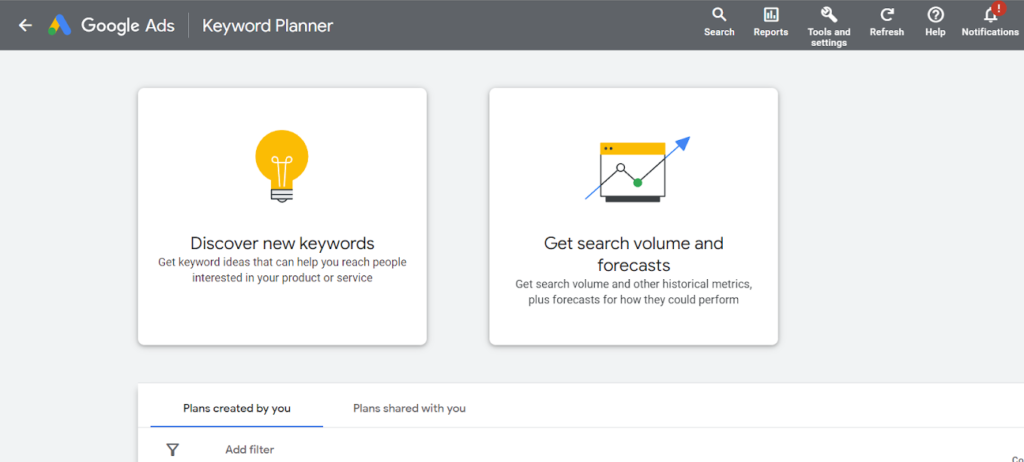
Ubersuggest: Ubersuggest provides users with a list of keyword suggestions, search volume data, and an estimated level of difficulty to rank for each keyword.
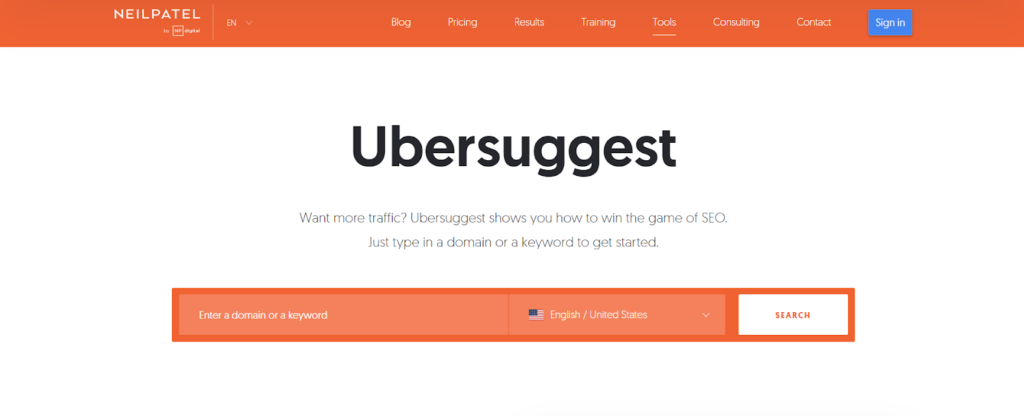
Keyword Tool: This tool is designed to help users find long-tail keywords for their content marketing and SEO campaigns. Keyword Tool generates a list of keyword suggestions based on a seed keyword or phrase, and provides data on search volume, CPC, and competition level. One interesting feature of Keyword Tool is that it can generate keyword suggestions for a wide range of platforms, including Google, YouTube, Amazon, and eBay.
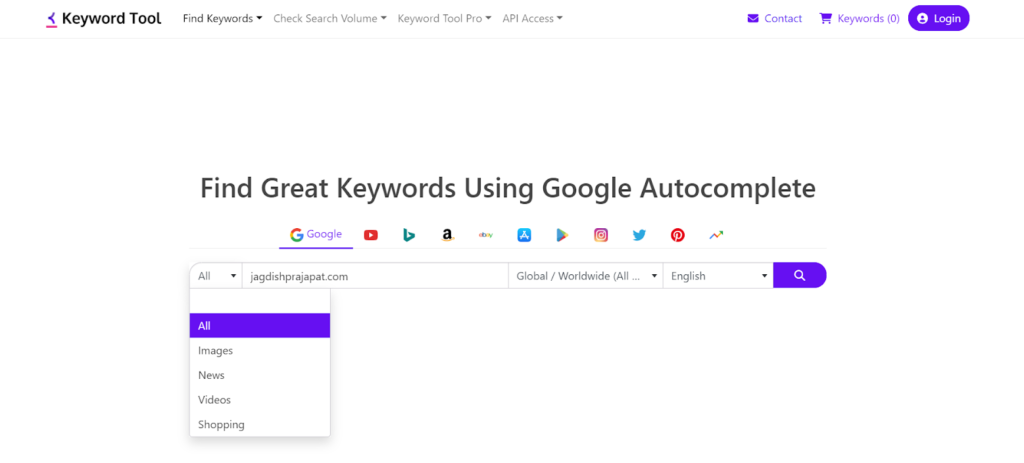
Google Trends: This tool allows users to see how search volume for a keyword has changed over time. It can be used to identify seasonal trends, track the popularity of a product or service, or monitor the effectiveness of a marketing campaign. Interestingly, Google Trends can also be used to compare the popularity of multiple keywords over time, making it a valuable tool for competitive analysis.
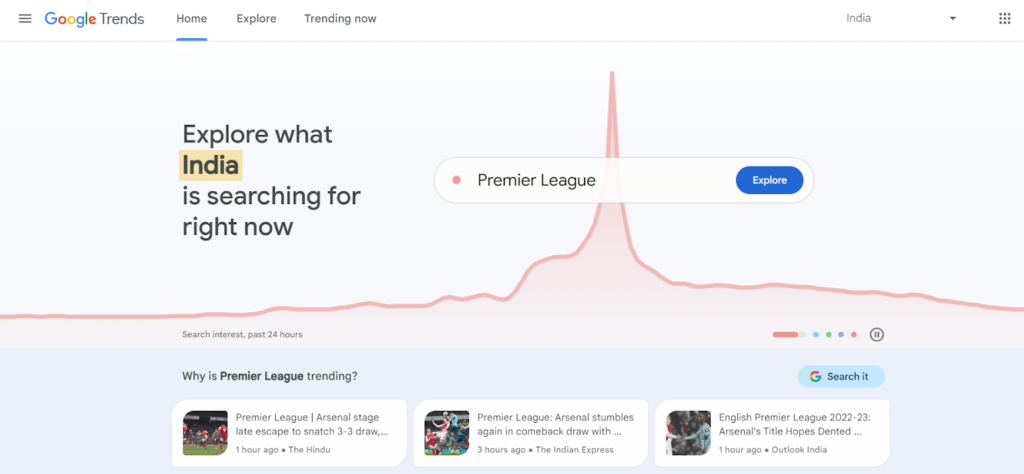
Answer the Public: This tool generates a visual map of questions and phrases related to a given keyword. It is designed to help content marketers create content that answers the questions that people are searching for online. Answer the Public is a great tool for identifying long-tail keywords and phrases that can be used to create blog posts, videos, and other content that provides value to your target audience.
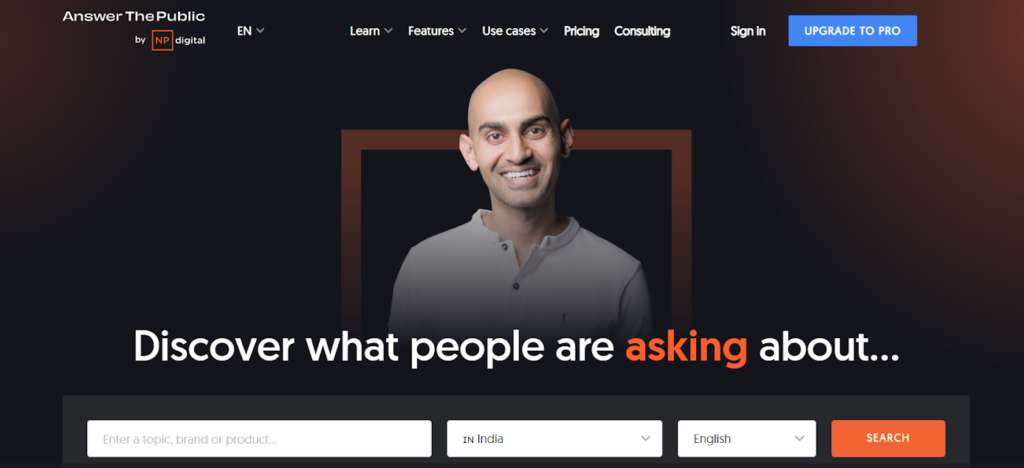
Using these tools can assist you in identifying the appropriate keywords to target for your website or content. They serve as a great starting point for conducting keyword research. If you want to learn about the top tools that SEO consultants use in 2023, click here to read more.
Final Thoughts
I have covered several topics related to keyword research in this article, including the purpose of keyword research in SEO, the impact of keyword research on online success, the types of keywords to consider, how to do keyword research, how to analyze competitor keywords, and best practices for keyword research.
I want to emphasize that the power of keyword research should not be underestimated for achieving online success. It’s not just about optimizing your website for search engines but also about connecting with your audience and understanding their needs and interests. By conducting thorough keyword research, you can target the right type of keywords and create content that resonates with your target audience.
So, if you want to achieve online success, I recommend conducting keyword research for your website. Don’t forget to use the tips and best practices mentioned in this article and make use of the free keyword research tools available. With a little bit of effort and a lot of creativity, you can take your website to new heights and achieve the online success you’ve been dreaming of. Happy researching!




1 Comment
Very informative Blog sir! Thanks for the share.